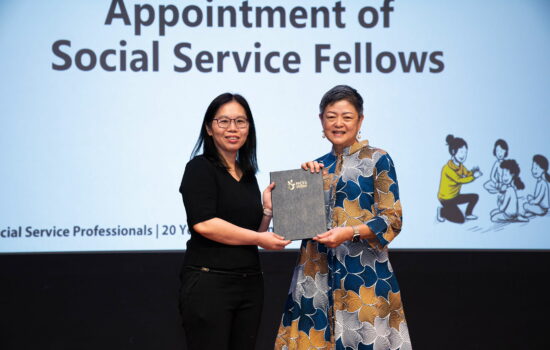In this letter published in The Straits Times Forum on 13 November 2015, SPD’s executive director Mr Abhimanyau Pal urges the public not to stop giving despite recent news reports of poorly managed charities, and calls for greater support for the development of good corporate capabilities in VWOs.
The few cases of poorly managed charities are not representative of the charity sector (“Holding charities to account”; Nov 5).
We hope such reports will not discourage donors from giving.
Beneficiaries needing support require help even in times of bad publicity. Their issues do not go away when donations drop. But when donors stop giving, charities may have to reduce the assistance they offer their beneficiaries, impacting them negatively.
According to the Commissioner of Charities’ 2014 annual report, more than half (52 per cent) of registered charities are relatively small, with annual receipts of less than $250,000 and accounting for less than 1 per cent of total receipts in the sector. These charities do not receive the main bulk of donations, and yet, they are held to the same standards as other charities by the public, which they are hard put to meet due to limited resources.
Though we are encouraged that the Government has created funds to help improve the corporate capabilities of the social service sector, these come with attendant criteria. Most voluntary welfare organisations (VWOs) may not have the capability to put up proposals to access such funds.
Good governance requires long-term investment in corporate capabilities like internal audits, quality management and IT. The public may want charities to be better run, but most would rather their donations be channelled directly to help beneficiaries rather than pay for corporate costs.
Recently, the Government started recognising the need for bigger VWOs to build corporate capabilities but, till today, corporate costs remain inexorable and the funding, lacking. While the Government offers funding to build corporate capabilities, some essential areas are excluded; areas the funds cover are also partial and indefinite.
The Government might understandably be constrained in channelling taxpayers’ money into areas where the outcomes cannot be plainly measured. But would bigger foundations, and, indeed, the Community Chest, then not be in a better position to help VWOs in this respect?
Good corporate capabilities enable an organisation to be more efficient and sustainable.
It is about time we encouraged a mindset shift in donors, the Government and big foundations about funding corporate costs, so that the charity sector’s operational capabilities can be strengthened to better support the delivery of good social programmes.
Abhimanyau Pal
Executive Director
SPD (formerly the Society for the Physically Disabled)





